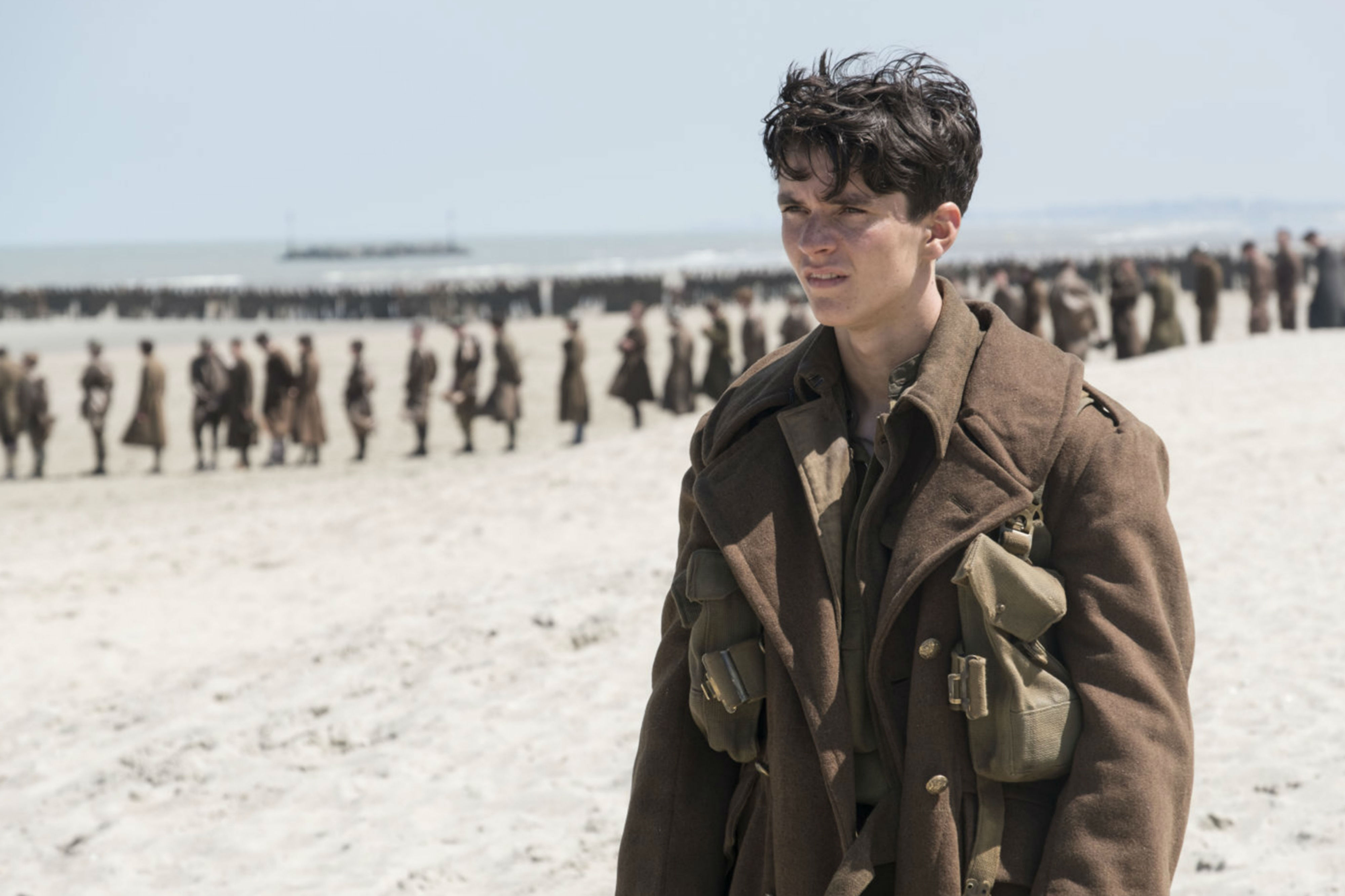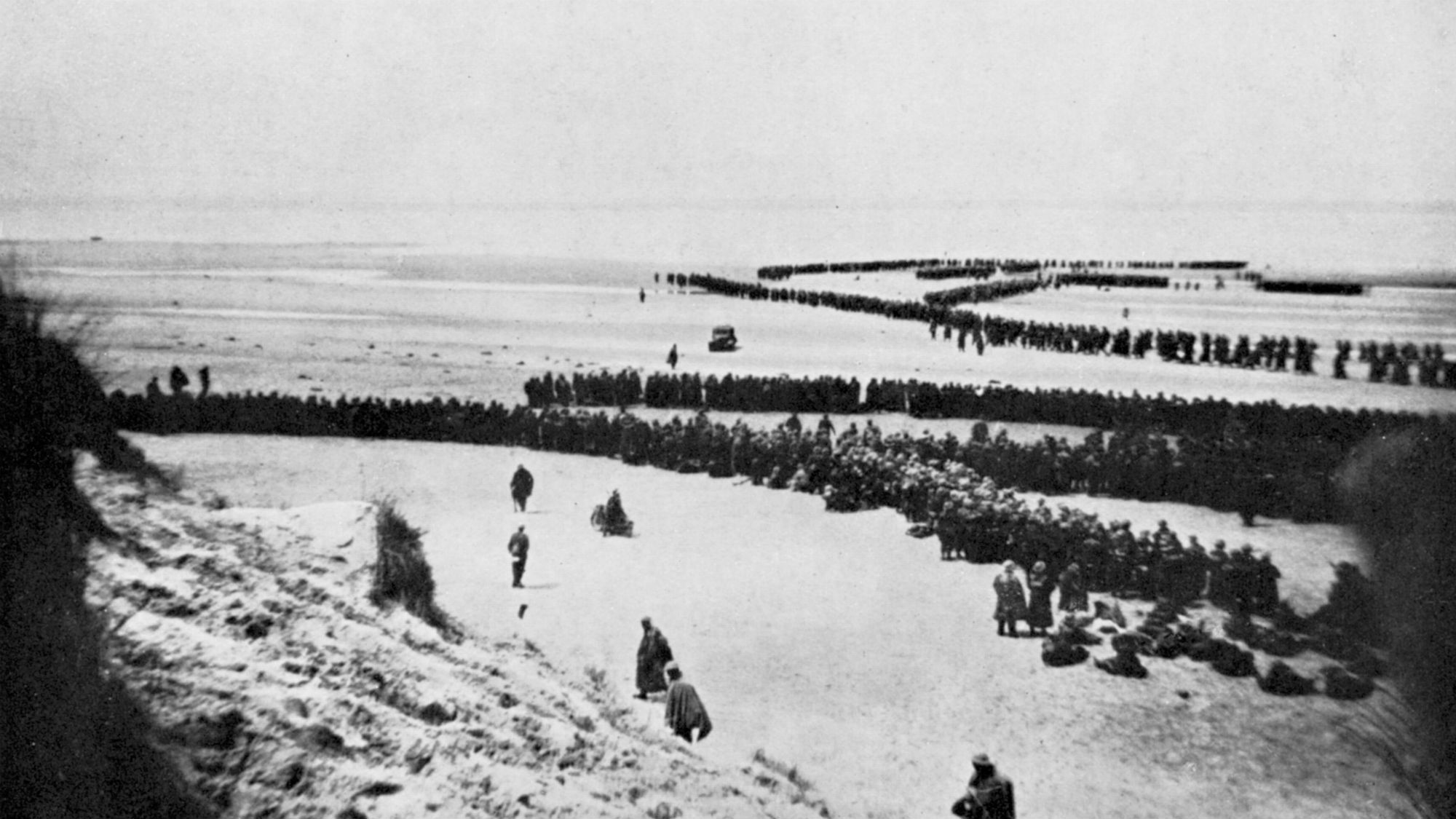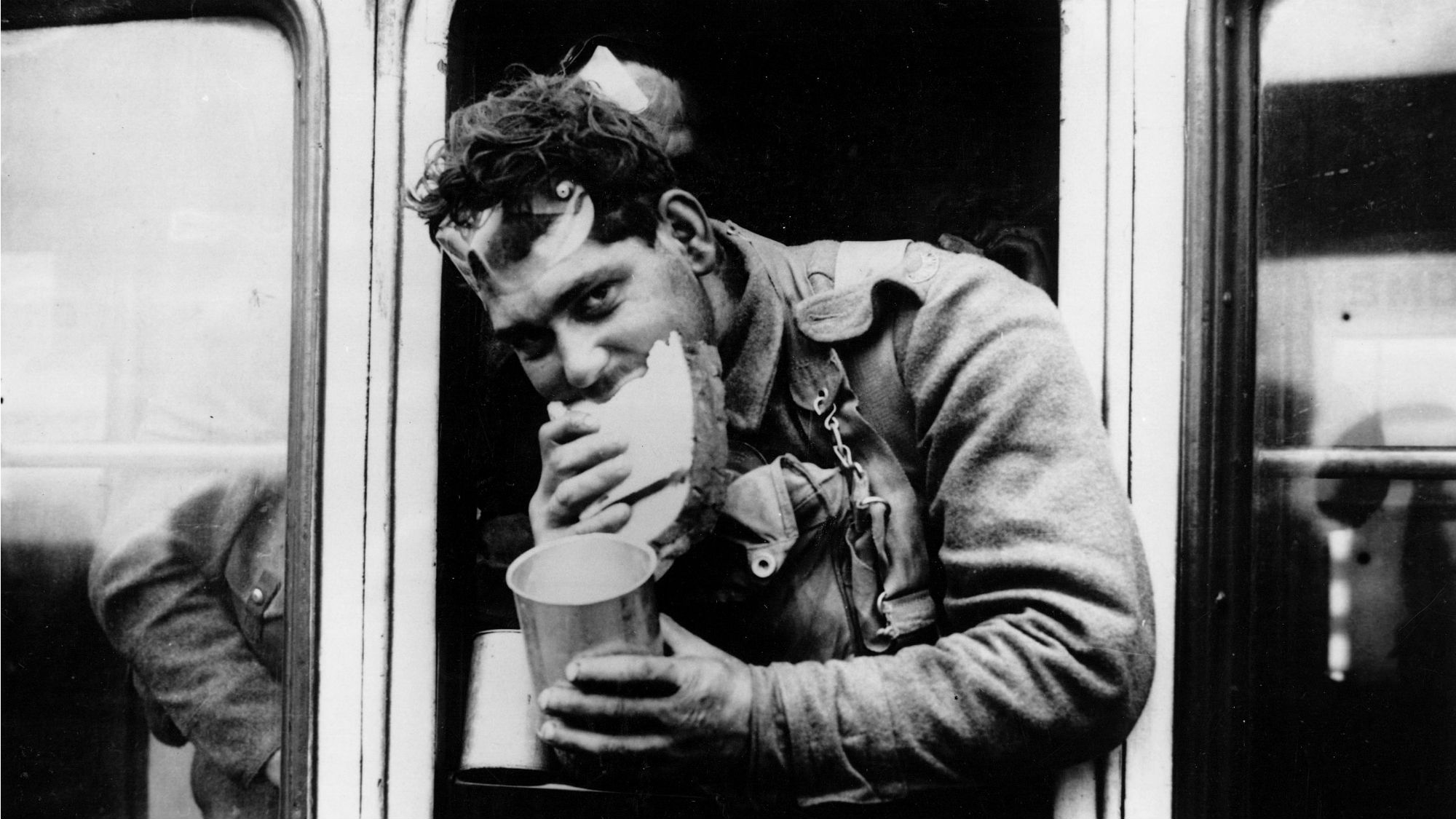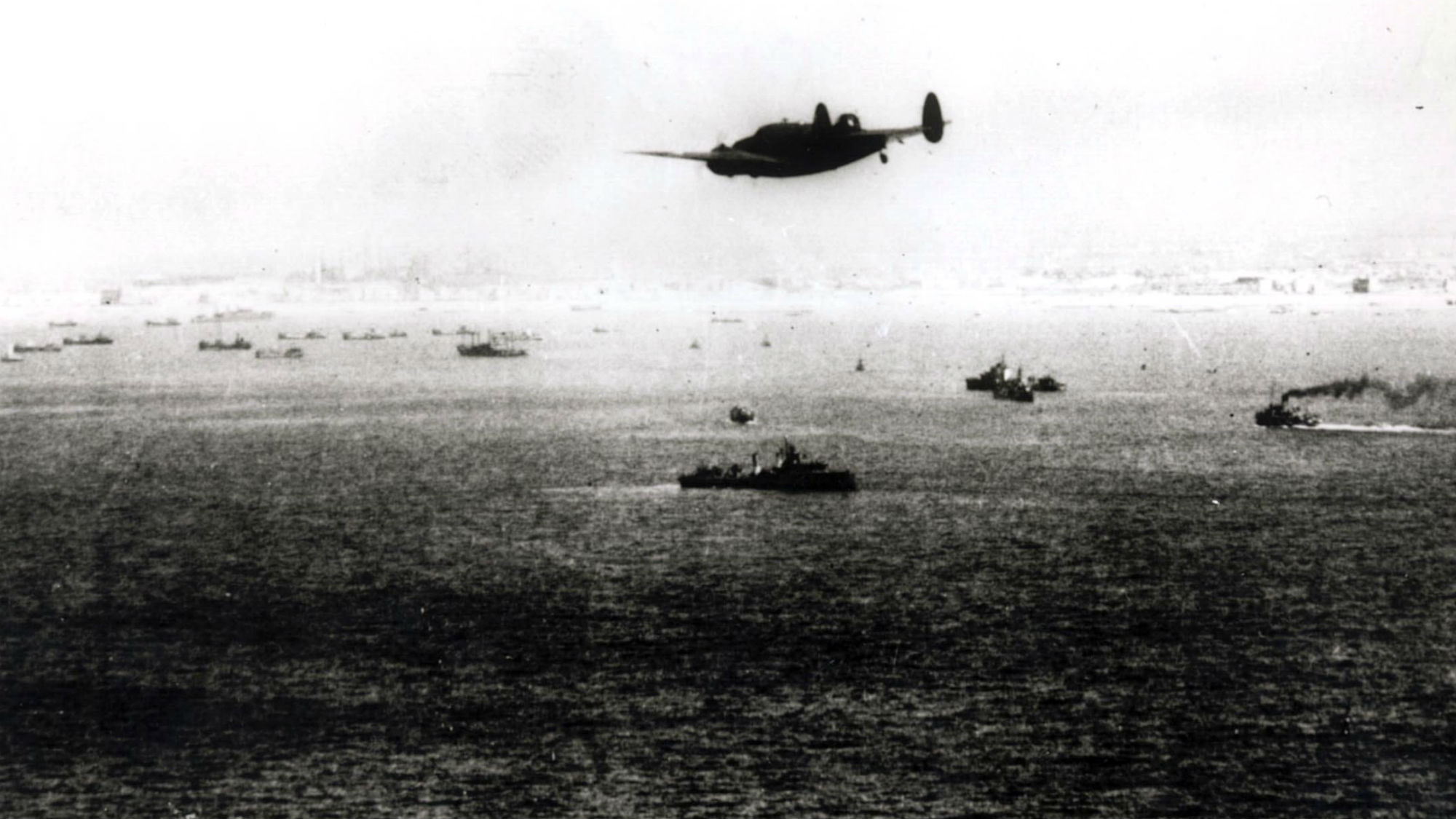Moving quotes about Dunkirk from men who were there
'I never thought I would see that again. It was just like I was there again.'


'I never thought I would see that again. It was just like I was there again.'
Christopher Nolan's new film Dunkirk is proving to be a critical and commercial success, with rave reviews and £81 million box office sales generated in its opening weekend alone. The film follows the true events of the World War II Dunkirk evacuation (code-named 'Operation Dynamo') which took place in May and June 1940. The operation saw over 300,000 Allied troops, in retreat from the Nazis, rescued from the beach and harbour at Dunkirk on the French coast by a fleet of 800 boats - a portion of them small fishing boats, dinghies and pleasure craft pressed into service by the military.
Nolan tells the story of Dunkirk from four perspectives: a naval Commander (Kenneth Branagh) boarding soldiers onto ships from the beach's mole (pier), a British fighter pilot (Tom Hardy) in pursuit of Nazi dive bombers who harried the rescue ships, a British civilian (Mark Rylance) sailing across the channel in his yacht to help with the rescue effort, and a motley group of young soldiers stuck on the beach, attempting to slip onto anything that floats (this group includes Harry Styles, making a more-than-competent acting debut).
Real accounts of the Dunkirk evacuation were used by Nolan to make the film - which has been praised by historians for its accuracy - and the Interstellar director opted to use real naval Destroyers, rather than green screen CGI, to make the movie feel as close to the reality as possible.
It is now 77 years since the evacuation, meaning the handful of remaining Dunkirk survivors are in their late nineties. Recorded in interviews and books in the years since World War II, here's a picture of what it was really like from the veterans who experienced Dunkirk first hand.

A British soldier's encounter with a brave French woman before reaching the beach
'It's a really hot day and I'm looking around behind me and I could see at the house a door opening and a woman came out in all black, an oldish [French] woman with grey hair. She looked over and she saw me and I was dying for thirst, I needed water. And I was going like this, "aqua" [...] And she went and closed the door and went in and I thought, "that's bad luck for you", but the next minute the door opened again, and from the pump I could see inside, she brought out a tray with cut glass and a jug with water and walked across the farmyard. And there are bullets, "ptew! ptew!", going over and a few mortars crashing, and I thought 'she's mad.' And she came over to me, I couldn't speak French, she couldn't speak English. She said something about, you know, "my bon ami" or something and she gave me the water. I said, "get going, get going - go", and she got up and walked straight across, and halfway across she stopped and spit and turned and waved her fist at the [enemy]. I thought, "she's some woman.'"- James Bradley, gunner in the Royal Artillery (James tells his full story in the BBC Archives)
Marie Claire Newsletter
Celebrity news, beauty, fashion advice, and fascinating features, delivered straight to your inbox!

A Private describes the scene on the beach
'Obviously the main job was to get out to the boats, because when we finally decided to come down out of the sand dunes, you've got to remember that we're running across the beach and you're jumping over blokes, you know, that are no longer with us, and dodging and diving because they're coming down machine-gunning you and everything else. You're trying to keep an eye on [this plane] while there's another one coming that way… like the Red Arrows. Anyway, as I say, that was my feeling. To come down and find some way across. Because we certainly couldn't have swam it. They [the boats] were too far out for that, for me anyway. Some of them did. They just stripped off and got away and good luck to them. But the other thing is that they [the enemy planes] were diving down, machine-gunning the boats and everything else, and bombing the ships you were trying to get to. You might get halfway there and there's no ship there, because it's been bombed.' - Reg Rymer, Private in The Cheshire Regiment (Reg tells his full story in the BBC Archives)

A rescuer makes his journey across the English channel in a fleet of small boats
'[Setting sail from England in a group of small boats that had been called upon by the military to make a rescue] It was the queerest, most nondescript flotilla that ever was, and it was manned by every kind of Englishman, never more than two men, often only one, to each small boat. There were bankers and dentists, taxi drivers and yachtsmen, longshoremen, boys, engineers, fishermen and civil servants [...] It was dark before we were well clear of the English coast. It wasn't rough, but there was a little chop on, sufficient to make it very wet, and we soaked the Admiral to the skin. Soon, in the dark, the big boats began to overtake us. We were in a sort of dark traffic lane, full of strange ghosts and weird, unaccountable waves from the wash of the larger vessels. When destroyers went by, full tilt, the wash was a serious matter to us little fellows. We could only spin the wheel to try to head into the waves, hang on, and hope for the best.
[Arriving on the beach] The din was infernal. The 5.9 batteries shelled ceaselessly and brilliantly. To the whistle of shells overhead was added the scream of falling bombs. Even the sky was full of noise - anti-aircraft shells, machine-gun fire, the snarl of falling planes, the angry hornet noise of dive bombers. One could not speak normally at any time against the roar of it and the noise of our own engines. We all developed 'Dunkirk throat,' a sore hoarseness that was the hallmark of those who had been there. Yet through all the noise I will always remember the voices of the young subalterns as they sent their men aboard, and I will remember, too, the astonishing discipline of the men. They had fought through three weeks of retreat, always falling back without orders, often without support. Transport had failed. They had gone sleepless. They had been without food and water. Yet they kept ranks as they came down the beaches, and they obeyed commands.' From Arthur D. Divine, in The Story of the Second World War by Henry Steele Commager

A soldier catches one of the last boats
'I was standing on the beach looking across at England when I heard a voice say "are you coming? It's your last chance". I saw a sort of fishing boat that was picking up stragglers and I boarded it and lay back with my hands dangling in the water. I fell asleep and the next thing I knew I was at Dover.' Romeo Jenkins, speaking to the Daily Mail in 2010
A Dunkirk veteran watches Dunkirk
97-year-old Dunkirk veteran Ken Sturdy, who was 20 and working for the Royal Navy when he helped evacuate soldiers from the beach at Dunkirk, broke down in tears at a screening of Nolan's Dunkirk in Canada (where he now lives). Sturdy wore his full military regalia to the screening and told Global News afterwards:
'I never thought I would see that again. It was just like I was there again... It didn’t have a lot of dialogue. It didn’t need any of the dialogue because it told the story visually and it was so real,' he said. 'I was 20 when that happened, but watching the movie, I could see my old friends again and a lot of them died later in the war. I went on convoys after that in the North Atlantic. I had lost so many of my buddies. One of my mates was taken prisoner. He wasn't killed on the beach. They marched him up to Poland. And he spent five years in a German prisoner camp.'
'Don't just go to the movie for entertainment,' he added. 'Think about it. And when you become adults, keep thinking.'
-
 Meghan Markle has finally explained her decision not to film ‘With Love, Meghan’ at her home
Meghan Markle has finally explained her decision not to film ‘With Love, Meghan’ at her homeBy Jenny Proudfoot
-
 Feeling inspired by the London Marathon? 10 science-backed pieces of running advice for beginners
Feeling inspired by the London Marathon? 10 science-backed pieces of running advice for beginners"Remember, running is for everyone - you included."
By Rebecca Shepherd
-
 After the perfect wedding mascara? I've tested over a hundred formulas—these are the ones I'd recommend
After the perfect wedding mascara? I've tested over a hundred formulas—these are the ones I'd recommendAll the length, volume and lift you could ask for
By Denise Primbet